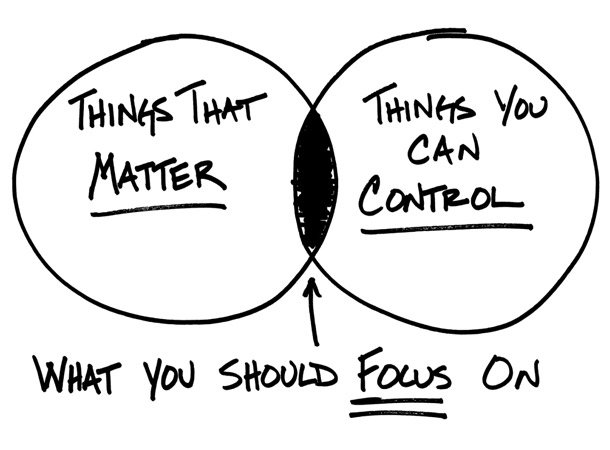If I had to identify a precise moment in my life when I decided that I wanted to become an entrepreneur, my best guess is that it was while reading the book Rich Dad Poor Dad, by Robert Kiyosaki.
One of the biggest lessons I learned from that book was the importance of learning. Work to learn, not to earn, Kiyosaki advised.
Recognizing that I would need to acquire many different skills to succeed as an entrepreneur, I decided to make personal development and skill acquisition my main priority as a young adult.
And out of all of the different skills that an entrepreneur should learn, the ability to sell is definitely a big one. If you can’t sell your product, service, or ideas to others effectively, your chances of success are slim. In fact, before Kiyosaki started his first business, he worked as a sales rep for Xerox, which had one of the top sales training programs in the country at the time. Determined to acquire this vital skill, I decided to follow in Kiyosaki’s footsteps.
At the age of 19 I applied for a job in the direct sales industry—aka door-to-door sales. Compensation was 100% commission. If you didn’t sell anything, you didn’t make any money. For most people, a job in direct sales is a nightmare. For me, it was an opportunity to master an important skill.
For the next 18 months, I sold TV, Internet, and home phone plans to residential customers door-to-door. I worked six days per week, helping to grow sales teams for three different clients in three major Canadian cities: Vancouver, Toronto, and Ottawa.
I did the math, and it turns out that during that time I knocked on more than 50,000 doors, pitched more than 20,000 people, sold more than 1,000 telecommunication products and trained dozens of other sales reps. I worked in every weather condition you can think of – summer heat waves, snow storms, torrential rain, and everything in between. It was a crash course in sales, facing rejection and overcoming adversity that no college or university could possibly offer me.
During that time, I learned how to sell, which was my initial purpose for working in that industry. But I also learned how to build teams, how to manage money, how to set goals, and a number of other valuable skills. In hindsight, it was the hardest but probably the most rewarding experience of my career.
I also learned some very important lessons that I think are valuable to anyone, especially salespeople and entrepreneurs. To save you from going door-to-door for 18 months to learn these same lessons, I’ll share them with you now.
Focus on Process, Not Results
As a direct sales rep, there were a lot of things that I could not control on a daily basis. I could not control the weather, or the territory I was assigned, or the promotions that the company I represented offered to new customers, or an infinite number of other things. But none of those things mattered anyway.
Instead of dwelling on the things that I could not control, I learned to focus on what I could control.
The first and most important thing that I learned to control was my attitude: how I responded to all of the things that were outside of my control. The second thing I could control was my activities—aka process. By maintaining a positive attitude, which is easier said than done, and focusing on the activities that were necessary to produce sales, I gave myself the best chance to succeed each day.
On the days that I chased results—sales—without respecting the process that it took to create those results, I usually came home with no commissions. On the days that I focused on my process—working my territory efficiently, introducing myself properly, giving strong presentations, overcoming objections smoothly, etc., the results took care of themselves.
When you master the process, the results will take care of themselves.
It’s Okay to Get Upset, but Get over It Quickly
This was not an easy lesson to learn. But knocking on doors in apartment buildings and townhouse complexes forced me to learn it very quickly. On those days, I only had a few seconds between each door. This meant that if someone was rude to me and slammed their door in my face, I had a few seconds to get over it and show up to the next door with a positive attitude. It was the best training in self control and emotional intelligence that I have ever received.
What I learned from that experience is that every person you interact with deserves to experience you at your best. They will never know if your previous interaction was a negative one, unless you reveal that to them through your attitude. If your attitude is even slightly negative, they will sense it. Never carry the baggage from a previous interaction into your next interaction. Give yourself some time to process it, learn from it, get over it and move on.
Your Integrity Will Be Tested When No One Else Is Watching
The easiest time to have integrity is when someone else is watching you. When you know that other people will see your actions, you are more likely to set the right example. If you don’t do the right thing, you will probably be held accountable for your actions.
But when you’re alone, there is no one else to hold you accountable. If you compromise your integrity, no one will know—except you. It is in those moments that maintaining your integrity—doing what you know is the right thing to do—is the hardest.
I remember days where the weather was so cold that if I took my gloves off to make a phone call, my fingers would immediately start to freeze. On days like that, all I wanted to do was find a restaurant or a coffee shop to hide in. I could lie to my manager and say that I knocked on more doors than I really did that day. Could I get away with it? Probably. Does that mean that I should? Absolutely not.
Each time you compromise your integrity and get away with it, it becomes easier to do it again. It becomes a habit, and if you keep doing it, eventually you will have no integrity left. It’s a slippery slope that will destroy you in the long-run.
Always maintain your integrity, even when no one else is watching.
Being Busy Is Not the Same as Being Productive
When you work on commission, you learn very quickly what activities produce revenue and which ones do not. Reading a sales book, for example, seems like a good idea, but does not actually produce any revenue. Giving sales presentations to decision-makers does. As a salesperson, anything you do that does not directly result in you giving more sales presentations to more decision makers is not a revenue producing activity.
I’m not saying that learning new information and refining your skills doesn’t have value. But you can spend a whole day learning and planning—being busy—and not actually get any real work done. The key is to know the difference and allocate sufficient time for activities that produce results before allowing yourself to be consumed by everything else.
Know Your Numbers—Track Everything
Every day that I knocked on doors, I carried a tracking sheet with me. I used this sheet to keep track of my activities throughout the day. At the end of the day, I could look at my tracking sheet and see exactly how many doors I knocked on, how many decision makers I talked to, how many presentations I gave, and how many products I sold. In between each step of the sales process was a conversion rate. Knowing what the numbers meant helped me identify which steps in the process I needed to improve.
If I knocked on a lot of doors, but I didn’t talk to very many decision makers, I probably knocked at the wrong times. If I gave a lot of presentations, but didn’t sell very many products, my closing skills likely needed improvement. If I sold a lot of products, but my cancellation rates were high, I probably pushed too hard for the sale, or didn’t qualify those customers well enough.
Regardless of the industry you’re in, there are certain metrics in your job or business that are worth tracking. And when you track your key metrics and understand what the numbers are telling you, you become better equipped to make good decisions. What gets measured gets improved.
Big Goals Invite Big Obstacles
When we first moved to Toronto, it took three months to find an office space that was suitable for us. I made a grand total of $80 in commissions during our first month in Toronto. Other sales reps on our team made less, and most of them quit. It was not a fun period.
If my only goal during that time was to make money, I probably would have quit too. There are easier ways to make $80 than working 60+ hours per week for an entire month. I could have applied for literally any job that paid minimum wage, and I would have made the same amount of money in a single day. It took me six months to become the top sales rep in Canada for the client we represented, at which point I was finally making decent commissions.
But making easy money wasn’t my first priority. Learning how to sell, and more importantly, learning how to be an entrepreneur was. That is a big goal, and big goals invite big obstacles.
The path to success in any industry is not void of obstacles. The people who keep going when everyone else quits are the people who have the biggest goals. When you have small goals, every obstacle seems big.
Your goals need to be bigger than your obstacles.
Don’t Take Rejection Personally
The final lesson I’d like to share with you is to not take rejection personally. Even when you do everything that is within your control correctly, some people just don’t want what you offer, and there’s nothing you can do about it.
Maybe they can’t afford your product or service. Maybe it’s not the right time for them. Maybe they like what they have and don’t want to change anything. Maybe they like your offer, but they don’t like you. Whatever the reason is, don’t take it personally.
Your job is not to convince everyone to buy from you. Your job is to find the people that do want what you offer and are a good fit. To find those people, you have to get through the people who aren’t a good fit for your offer as quickly as possible. There is no shortcut. When someone rejects you, thank them for their time and move on. There are always more people to talk to. There is always another door to knock on.
This is a Contributor Post. Opinions expressed here are opinions of the Contributor. Influencive does not endorse or review brands mentioned; does not and cannot investigate relationships with brands, products, and people mentioned and is up to the Contributor to disclose. Contributors, amongst other accounts and articles may be professional fee-based.

